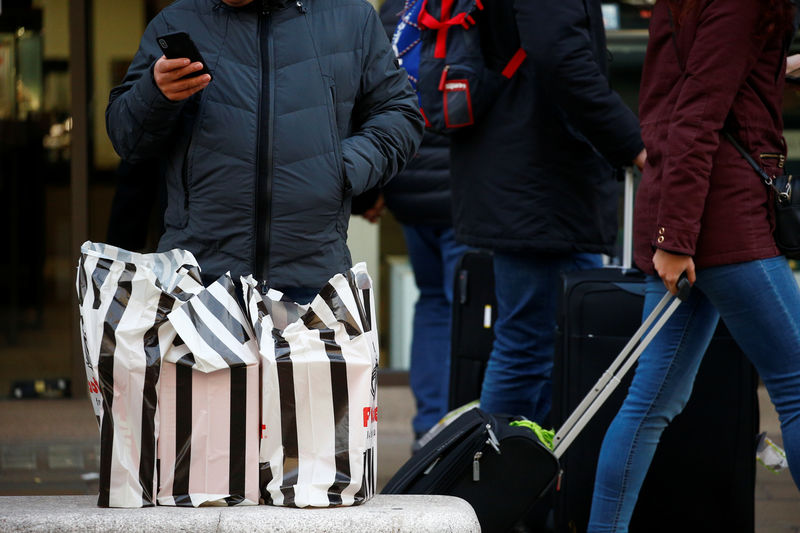LONDON (Reuters) - British consumers picked up the pace of their shopping in January which rose by the most in seven months, giving a bit of relief to retailers after their worst Christmas in a decade, a survey showed on Tuesday.
The British Retail Consortium (BRC) said its members reported total sales increased by an annual 2.2 percent, helped by higher spending on food and New Year price cutting.
"While retail discounts helped tempt cautious consumers, there is no guarantee this momentum will continue after the sales have finished," BRC Chief Executive Helen Dickinson said.
"Furthermore, the risk of a disruptive no-deal Brexit could see these fortunes reversed."
Prime Minister Theresa May wants European Union leaders to offer more concessions on Britain's exit deal, less than two months to go before the country is due to leave the bloc.
The BRC said colder weather helped drive clothing sales.
British consumers have seen their spending power squeezed for much of the past 10 years although their wages have grown more quickly than inflation in recent months.
Reflecting the squeeze, sales of non-essentials fell again in the three months to January, the BRC said.
Separately on Tuesday, Barclaycard said its measure of consumer spending rose by 2.9 percent in annual terms, also quicker than December's 1.8 percent rise.
Similar to the BRC, Barclaycard said the increase was driven mostly by spending on essentials which rose the most in five months, up 6.4 percent. Supermarket spending was up by 6.8 percent, the most since April 2017.
Supermarket groups Sainsbury's and Morrisons both missed their Christmas sales forecasts. Sainsbury's highlighted highly competitive and markets which were awash with discounts.

Barclaycard's figures are based on credit and debit card spending between Dec. 23 and Jan. 19. The BRC data cover Dec. 30 to Jan. 26.